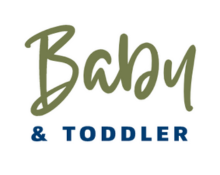
Sore nipples are a common concern for breastfeeding mothers, especially in the early days or weeks of breastfeeding. Here are some tips to help alleviate and prevent sore nipples:
Ensure a proper latch: A proper latch is crucial for comfortable breastfeeding. Make sure your baby is latching onto the breast correctly, with their mouth wide open and taking in a good portion of the areola along with the nipple. This helps ensure that your baby is effectively removing milk and reduces the likelihood of nipple pain or damage.
Break the latch gently: If you feel discomfort or pain during breastfeeding, gently break the suction by inserting a clean finger into the corner of your baby’s mouth to release the latch. This can help minimize discomfort when unlatching.
Try different feeding positions: Experiment with different breastfeeding positions to find the one that is most comfortable for both you and your baby. Positions like the football hold, side-lying, or laid-back position may help reduce pressure on sore areas.
Use nipple creams or ointments: Apply lanolin-based or nipple creams such as Purelan or Organic Nipple Balm recommended by your healthcare provider after each feeding. These products can soothe and moisturize your nipples, promoting healing and preventing further damage.
Air dry your nipples: Allow your nipples to air dry after each feeding to help prevent moisture build-up and promote healing. Avoid using harsh soaps or alcohol-based products that can dry out the skin, use a massage oil to help keep the breasts and nipples moisturized.
Breast milk for healing: After breastfeeding, express a small amount of breast milk and gently rub it on your nipples. Breast milk has natural healing properties and can help soothe and protect sore nipples.
Check for tongue tie or lip tie: If your baby is having difficulty latching properly or you experience persistent nipple pain, it may be worth getting your baby evaluated for tongue tie or lip tie by a healthcare professional. These conditions can affect latch and contribute to nipple discomfort.
Seek support: Reach out to a lactation consultant or breastfeeding support group for assistance. They can provide guidance, assess your baby’s latch, and offer personalized advice to address any breastfeeding challenges you may be facing.
Remember, nipple soreness is often temporary and tends to improve as you and your baby become more experienced with breastfeeding. However, if the pain persists or worsens, or if you develop cracked or bleeding nipples, it is important to seek guidance from a healthcare professional. They can assess the situation, identify any underlying issues, and provide appropriate treatment and support.
